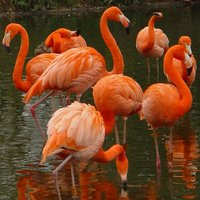The Role of Our Mother Tongue
Not long after the 2nd World War that ended in August, 1945 , I began my kindergarten education at a Chinese run by the Presbyterian Church. The following year, I continued two years of primary education in the same school. In 1948, I was transferred to an English school run by the Methodist Mission until I completed my Overseas School Certificate Exam in 1958 ( present day O Level) because my father foresaw the economic value in the English language as Singapore was a British Crown Colony then. It was also considered a privilege to be admitted to English schools. During that time the number of places available in English schools were limited. They were run by the government and the churches. The Chinese schools were run by the clan associations of the various ethnic Chinese groups.
Imbued with Confucian value, my father advocated that his children, being of Chinese descent, should study at least the rudiments of the Chinese language. On his advice, I resumed my Chinese education in 1951 for another three years when I had to attend both English and Chinese schools simultaneously dividing into morning and afternoon sessions. Owing to limited time available at my disposal, I could not handle the workload assigned to me by the two schools. Eventually I opted to drop out the Chinese school.
After an interval of a few years, I resumed my Chinese language lessons for another two years in the evenings at the Singapore Chinese Mandarin School located at Prinsep Street. I improvised it with practical sessions by hopping into Majestic theatre or Oriental theatre for Chinese shows occasionally while on my way to attend classes. It was the most fruitful lessons that I ever gained; and I even managed to offer Chinese as one of the subjects for my Overseas School Certificate Examination in 1958 (present day 'O'level Exam).
Sometime in March,1959, I began attending a Malay language class conducted by a Community Centre in the evenings for about nine months. When Singapore became a self-governing state in June the same year, Malay was declared as our National language. Classes for the language mushroomed. It was an asset to know Malay when looking for jobs in the 60s especially during the period when Singapore was a part of Malaysia.
I have tried to be equally proficient in all the three languages that I have studied, but I found difficulty in accomplishing it. I cannot help attributing it to Singapore's colonial past when English was the sole administrative language of government departments until it became a self-governing state in 1959, and the circle of friends with whom I moved around in my formative years. Subconsciously, English becomes my principal language for communications in my daily life while the other two languages are confined to secondary roles.
Malay (our National language), English, Chinese, and Tamil are the official languages our nation. The students study English as first language in schools plus a second language (the mother tongue) to be chosen from one of the official languages based on ethnic groups. Members of Parliament are permitted to deliver their speeches in the Parliament in any of the four official languages of their choice. The lyrics of our National Anthem are written in Malay (the National language). The text of the National Pledge is penned in English. At football and sepak taktraw matches, Malay is the common language used for the occasion; and Chinese language is associated with spectators at table-tennis and basketball matches. It is also not uncommon to overhear local people here speaking to each other in a mixture of English/Chinese/Malay along the streets or in MRT trains. It is very unique, and all these add spices in our lives in a multilingual society.
With our bilingual policy in education, I believe we have built up a populace that is at least bilingual at conversational level, although English is more commonly spoken than the other official languages. As our four official languages combined are spoken extensively through out the world, it puts us in good stead in the field of commerce and the tourism and hospitality industry. Multi-national companies will find it conducive to set up their regional offices here; and tourists, especially those from Asian countries, will not encounter any language problems during their short stay here.
Occasionally I hear people with chauvinistic inclinations lamenting the dominance of English over the other three official language. They are anxious that this will lead to a decline in the standard of the mother tongue. I doubt we can arrest this trend because the world is biased towards the English language for its economic value and wide usage. It has become the lingua franca of Singaporeans. Countries, which have previously replaced English with their respective national languages for nationalistic pride, are re-introducing it to their people out of pragmatism.
I am not against the bilingual policy in our education system lest I be misunderstood. Our school children are the very fortunate lots, unlike my times when the mother tongue was not taught in English schools. With all the opportunities available to them, they should be encouraged to attain at least a reasonable level in their mother tongue while in schools, and hopefully they can still read and write it reasonably well in simple style when occasion demands.
We may even have to build a reservoir of effective bilinguals in English/Chinese to compete globally for a slice of the cake dished out by the emerging economy of China. It further reinforces the future role of the mother tongue that is going to play. Therefore, it is imperative that they have to strive, to seek. to find, and not to yield.

